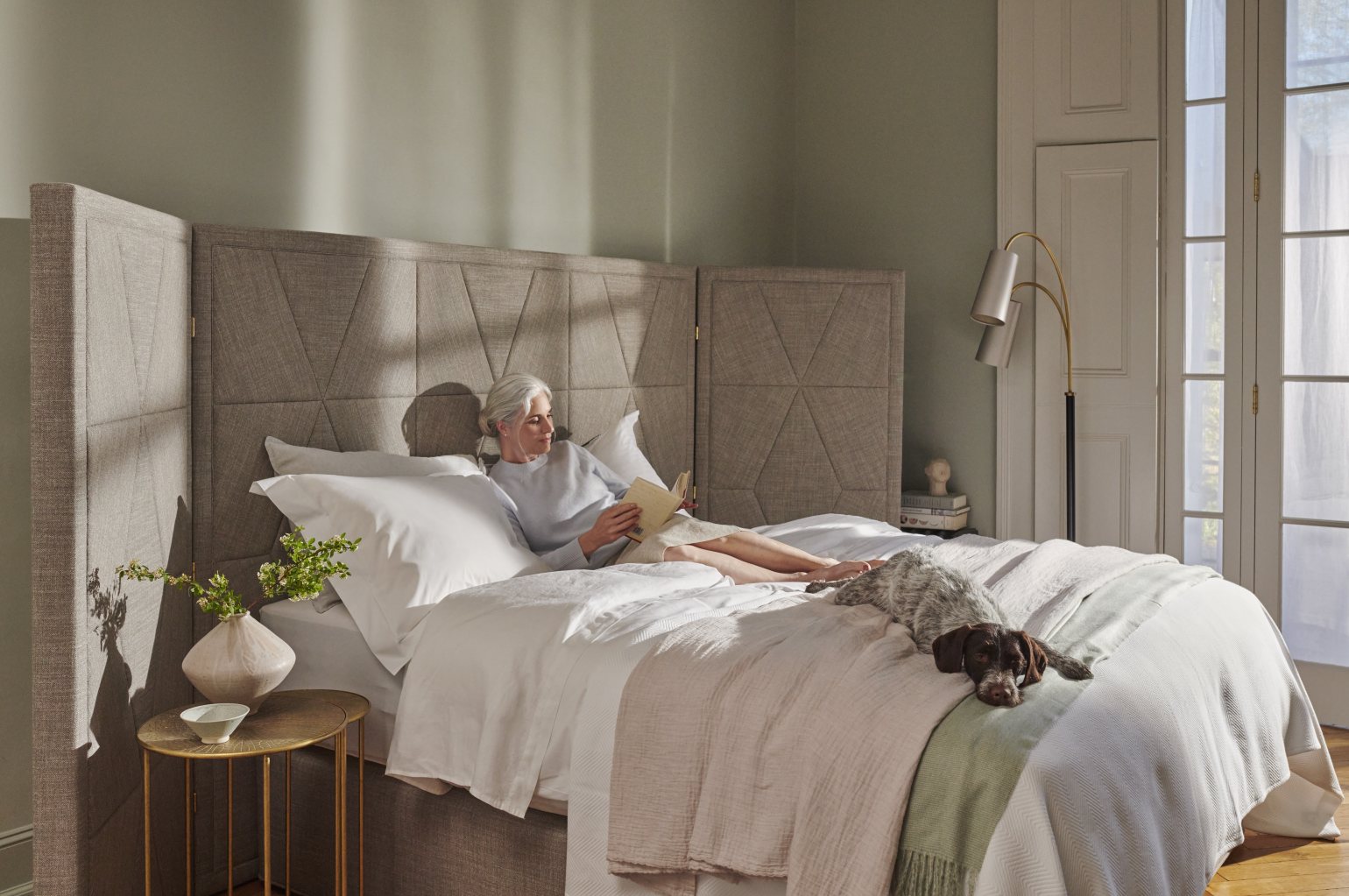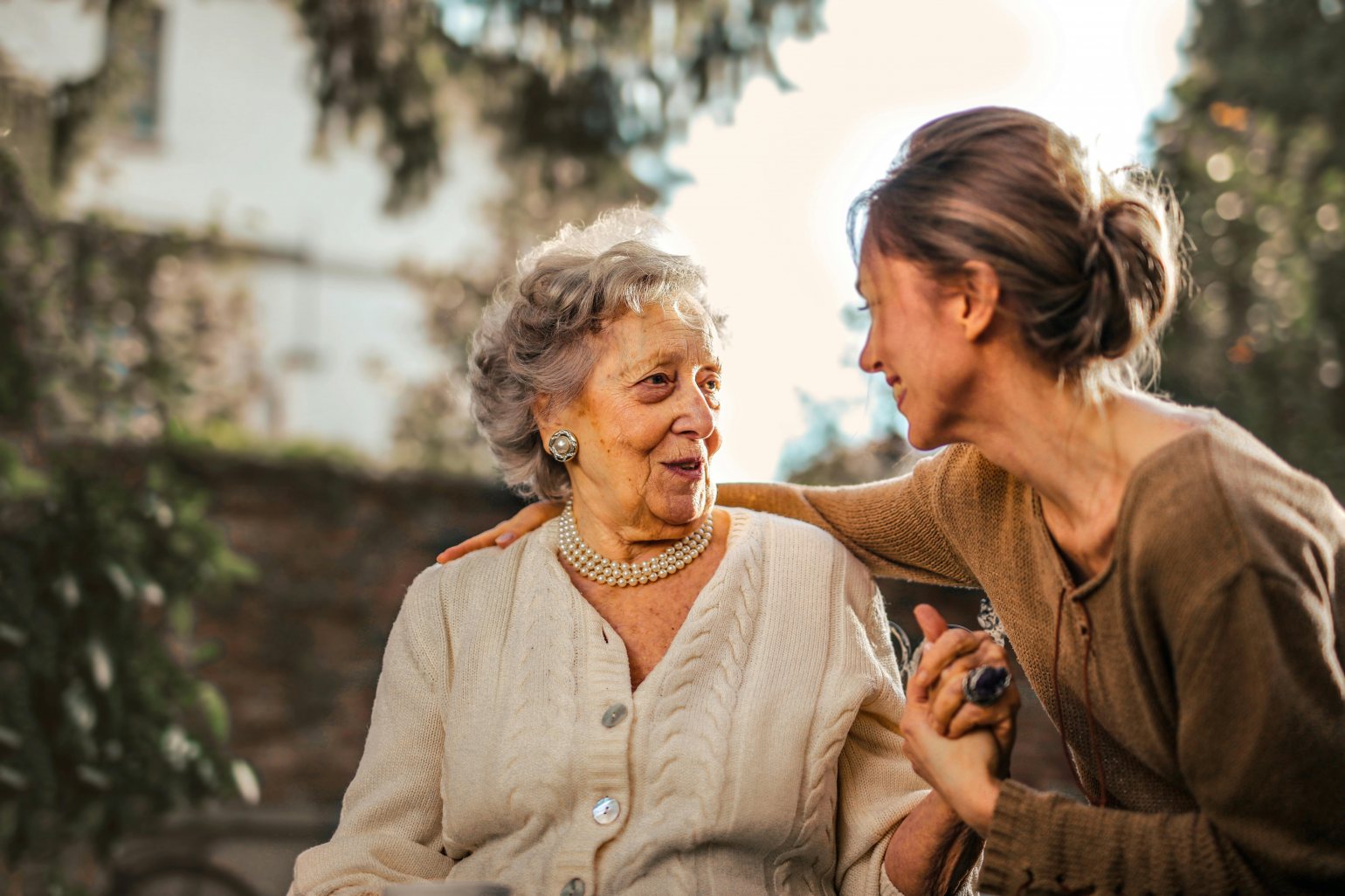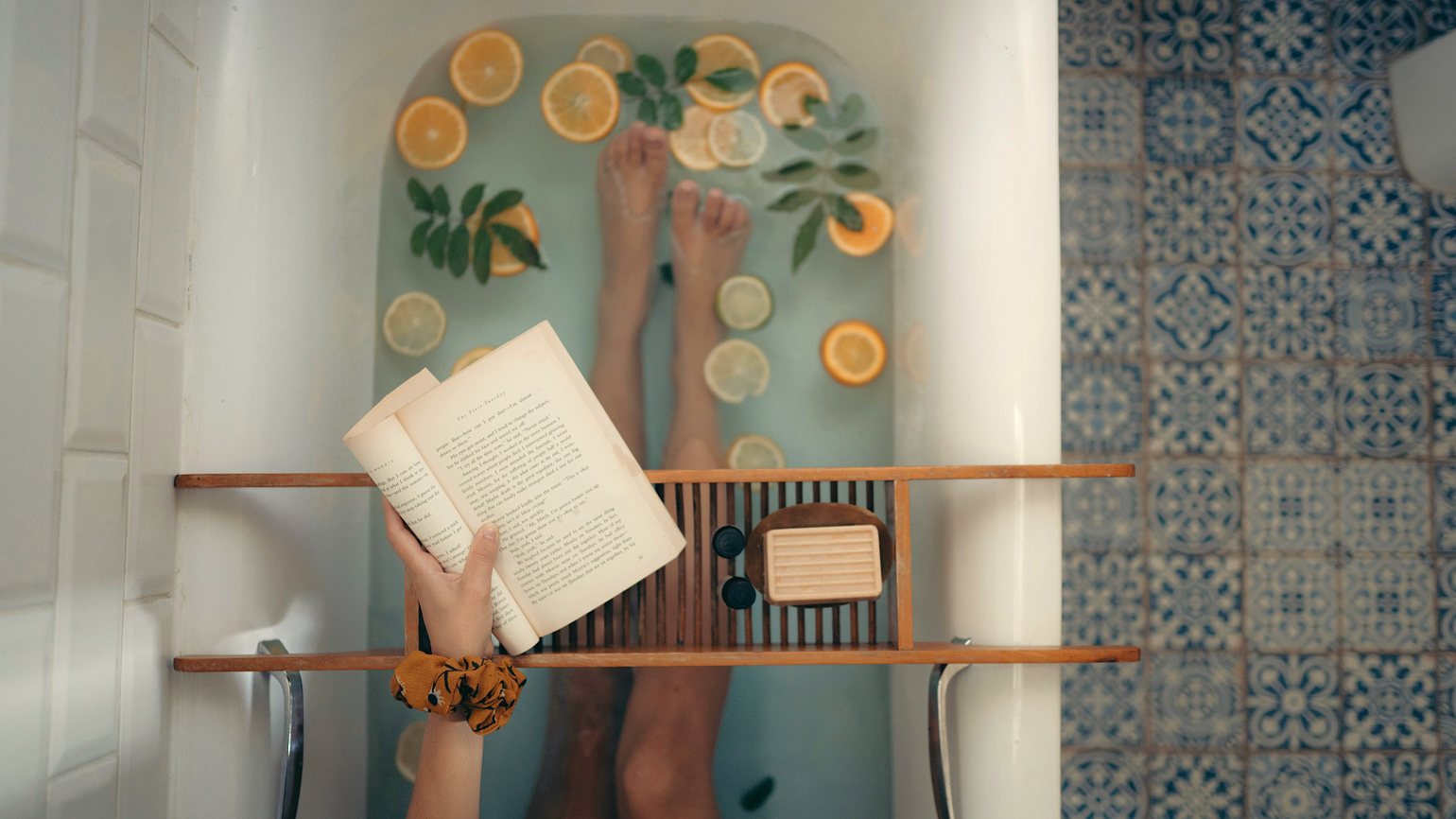Tips On Sleeping With Menopause

Menopause is a completely natural part of the ageing process and happens when periods stop due to lower hormone levels. This usually occurs for women between the ages 45 and 55 but can happen as early as your 30s or as late as your 60s.
Thanks to events like World Menopause Day (18th October2024 ), women are becoming more comfortable and open about their experiences with menopause, as well as having a better understanding of the symptoms and support available.
When women go through menopause they can experience a whole range of symptoms, including hot flashes, night sweats, mood changes, sadness or anxiety, weight gain, memory problems and vaginal dryness.
How Does Menopause Affect Sleep?
All of these symptoms often mean that sleep is affected by menopause. While studies suggest around 12% of women generally experience sleeping problems, such as insomnia, this rises to 40 to 60% during peri and post-menopause.
The most common complaint is waking and being unable to return to sleep, or “menopause insomnia”, often associated with night sweats. People who experience more daytime hot flashes also report more perimenopause insomnia. When it comes to post menopause, there is an increased risk of developing obstructive sleep apnoea as well as restless leg syndrome.
8 Doctor Tips To Improve Your Sleep During Menopause
To help with the menopause and sleep problems, our resident sleep expert and psychologist, Dr. Lindsay Browning, has shared 8 ways to improve your sleep during the menopause.
1. Have A Great Bedroom Setup
This is one of the most important aspects of being able to sleep better during the menopause. Having a great bedroom setup includes keeping the bedroom cool and well-ventilated. This will help with night sweats which can cause broken sleep. For instance, you could use a misting water bottle to spray cooling water on your face during the night if you feel too hot. There are also many products these days with cooling technology or properties.
Take a Look at our Cooling Bedding & Mattress Edit for ideas.
Having a breathable mattress should also be considered to allow for maximum airflow, whilst also making sure the mattress is supportive for your sleeping style. You might also want to consider using a separate duvet from your partner, otherwise known as the ‘Scandinavian sleep method’, so that you can take it off when you get too hot and put it on again when you get too cold without disrupting the other person. High quality bed linen is also going to help with breathability here.
If you are particularly struggling with night sweats then consider sleeping on a towel - that way it can absorb sweat and then you can remove it if you wake too hot and sweaty, leaving a dry bed and mattress underneath.

2. Avoid Synthetic Materials
You should avoid nightwear that is made from synthetic materials, and instead opt for natural fibres like cotton or linen. This is because these are more breathable and better at absorbing sweat, keeping you cool during the night.
3. Follow A Regular Sleep Schedule
It may be tempting to stay up later at the weekends or have a lie-in but you should try to go to bed and wake up at the same time seven days per week.
If you are struggling to sleep at night, avoid napping during the day, especially for longer than 20 minutes, as that can interfere with your ability to sleep at night. If you can’t fight off the nap, then where possible, avoid napping too late in the day (lunchtime is the ideal time), as this will not interfere with your sleep at night as much.
4. Maintain A Healthy Weight And Diet
Increased body weight is associated with sleep apnoea, and women tend to gain weight after menopause and sleep problems. Try to exercise regularly but avoid doing vigorous exercise, right before bed as this can keep you awake due to the release of endorphins and adrenaline.
Also, certain foods that are spicy or acidic can trigger hot flashes so try and avoid these before bed.

5. Be Prepared For The Hot Flashes
It is very common for women going through menopause to wake up in the night due to night sweats. There are ways you can prepare yourself for this and develop a routine for falling back asleep. For instance, always have a fresh pair of pyjamas or a nightie next to the bed, ready to change into once you wake up hot and covered in sweat.
If you are really struggling to get back to sleep, you could get up for a short while to help your body reset before going back to bed. It’s commonly assumed that staying in bed with the lights off is the best method to help you fall back asleep, however, in practice, trying to ‘force’ sleep to happen often makes people more agitated.

6. Avoid Excessive Amounts Of Caffeine And Alcohol
You should avoid caffeine and alcohol, especially in the late afternoon and early evening. These substances can disrupt sleep and lower your sleep quality. Caffeine has an average half-life of approximately 6 hours, meaning that 6 hours after your last cup of coffee, half of the caffeine is still in your system.
It’s worth noting that caffeine is not only found in tea and coffee but also in chocolate and soft drinks such as cola and energy drinks, including sugar-free varieties.
If you have menopause sleep issues, then it is recommended for you to have your last cup of caffeine of the day at around 2 pm.
While alcohol is a sedative and can help with falling asleep, as the alcohol is metabolised (processed by our body), it promotes wakefulness in the latter half of the night – meaning that you wake frequently in the early hours. Also, alcohol affects the normal progression of the sleep stages we go through each night, meaning that the sleep we do get is not as restorative.
7. Reduce Your Stress Levels As Much As Possible
Many women going through menopause may experience higher levels of sadness or anxiety. Anxious and stressful thoughts can keep you up at night, making it much harder to fall asleep. To help with insomnia and menopause, you could start a bedtime routine that aims to lower your stress levels, such as having a relaxing bath, reading or some meditation before bed.
Making time during the day to write a journal or do a gratitude journal is a great way of helping to brain dump so that your mind isn’t overloaded when you are trying to switch off to go to sleep.
Instead of your brain doing that thinking and processing during the night or in your dreaming state, write down any troubling thoughts, questions and ideas throughout the day in a journal.
This way, it will allow you to get those thoughts out of your head before bed, helping a restful night.

8. Speak To Your GP Or Specialist
If menopause is having a significant impact on your sleep, it’s important to consider speaking to your doctor about treatment options. For instance, with hormone replacement therapy (HRT), many people report improvement in their symptoms (including night sweats and hot flashes).
However, it’s worth noting that HRT is not suitable for everyone, depending on your medical history and health risks, therefore, it's important to speak to your doctor first about whether this is the right option for you.
While you navigate menopause, why not discover our wealth of knowledge on just about everything else “bed” and “bedroom design” related.
Improve your sleep even further by Booking A Sleep Expert Consultation at one of our Nationwide Showrooms - Please Note that the consultation is for one of our And So To Bed sleep experts, not with Dr. Lindsay Browning.

-
Posted by Charlie Vose
18th October 2024


